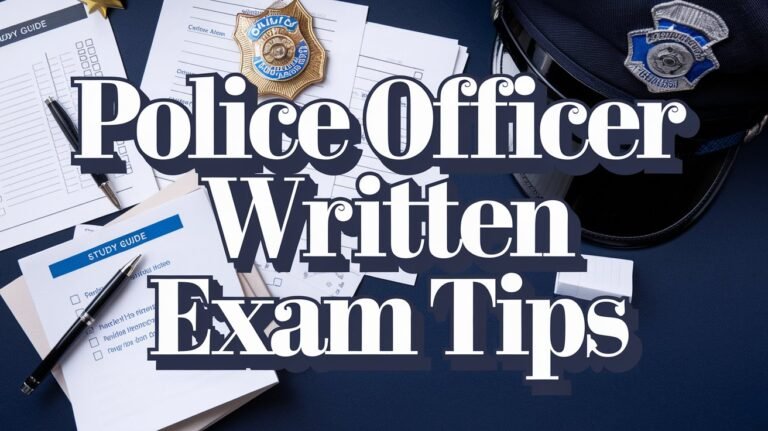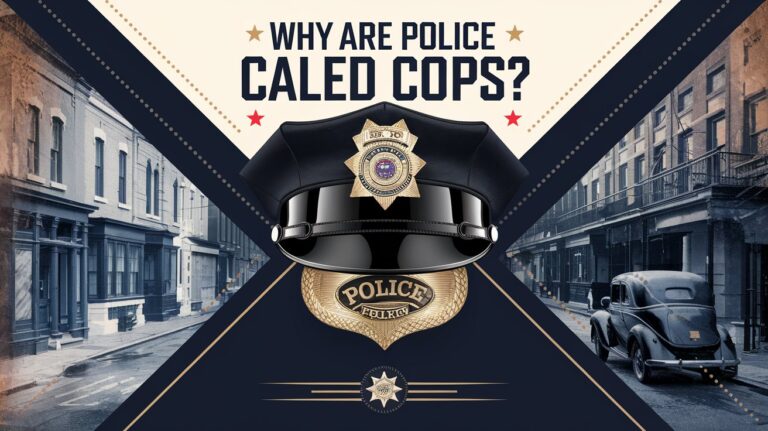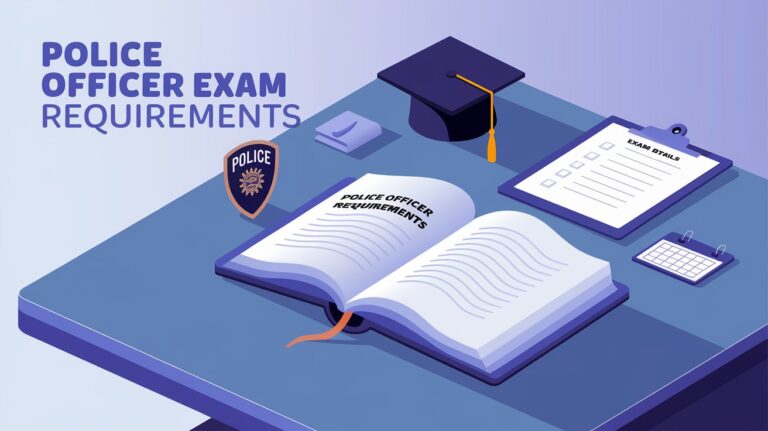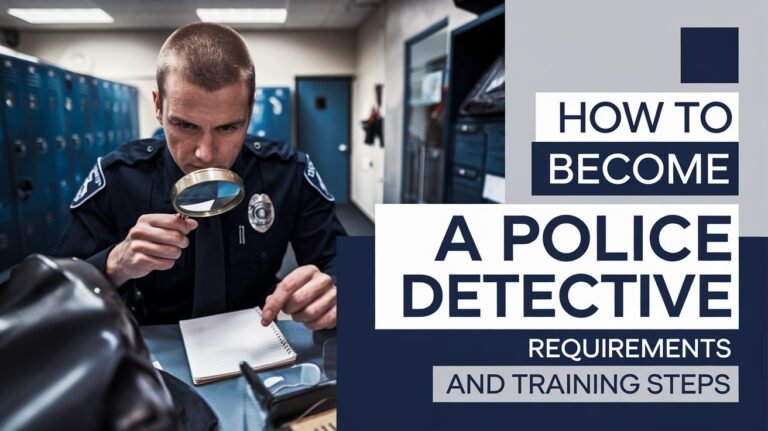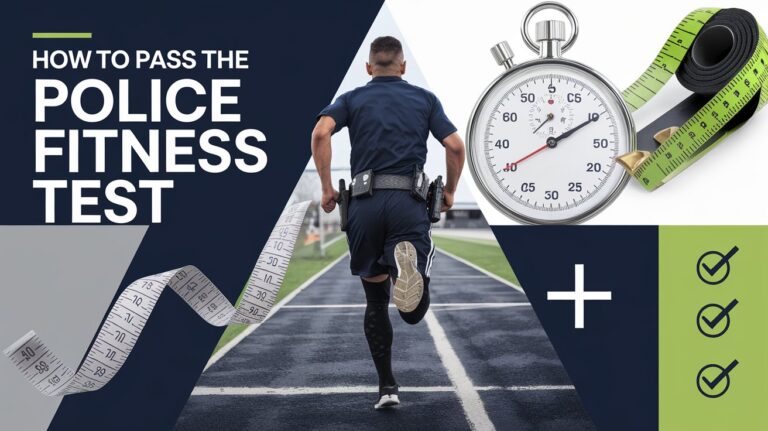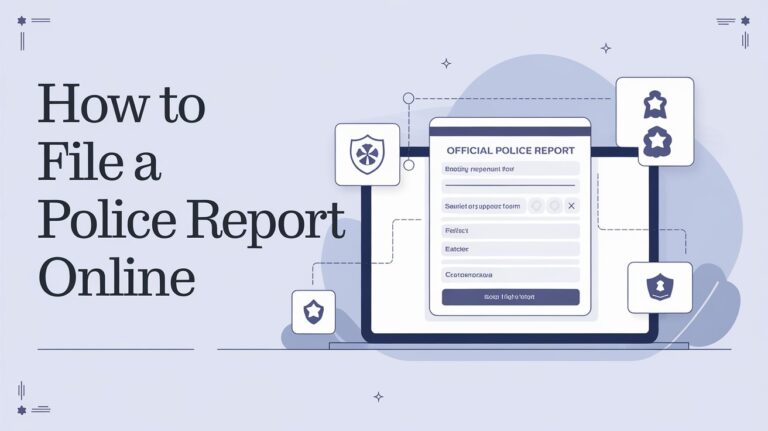Police Officer Mental Health Tests: Standards & Requirements

In the world of law enforcement, keeping officers mentally healthy is key. Government Code Section 1031(f) says candidates must be mentally fit. The Peace Officer Psychological Evaluation (POPE) is now a big part of hiring and checking officers.
The POPE test checks if someone is right for the job. It looks at their personality, past, and how they handle stress. This test follows strict rules to make sure officers are ready for the job.
These tests help find the best candidates for police work. They make sure officers can handle the job well. This keeps officers safe and builds trust with the community.
Mental Health Standards in Modern Law Enforcement
In the United States, law enforcement officers must meet strict mental health standards. These are set by government codes and regulations. The California Peace Officer Standards and Training (POST) program is key in defining what officers need to be fit for duty.
Current Government Code Requirements
California peace officers must meet certain standards. They need to be free from disqualifications and legally allowed to work in the U.S. They must be at least 21 years old, fingerprinted, and of good moral character. They also need a high school diploma or equivalent.
POST Psychological Screening Dimensions
The POST Psychological Screening Dimensions guide the evaluation of aspiring officers. These dimensions focus on psychological traits needed for law enforcement. They ensure candidates can handle the job’s demands.
Essential Behavioral Traits Assessment
Law enforcement agencies also check essential behavioral traits. These traits are crucial for an officer’s ability to perform duties safely and effectively. Duties often involve high-stress situations and quick decision-making.
| Trait | Description |
|---|---|
| Emotional Stability | The ability to maintain composure and control emotions under pressure. |
| Interpersonal Skills | The capacity to communicate effectively and build positive relationships with the community. |
| Impulse Control | The self-discipline to make sound decisions and avoid reckless or impulsive actions. |
| Adaptability | The flexibility to adjust to changing circumstances and respond appropriately to diverse situations. |
Following these mental health standards, law enforcement agencies ensure their officers are ready for the job. This helps them provide effective and compassionate service to their communities.
Police Officer Mental Health Tests Components
The psychological evaluation for police officers checks many aspects of a candidate’s mental health. It looks at their personality, decision-making, stress tolerance, and mental fitness. This helps understand if they’re right for the job.
The written personality inventory is a key part of this test. It uses the Big Five model to check traits like extroversion and emotional stability. It helps see if the candidate fits the demands of policing.
The test also includes a detailed questionnaire about the candidate’s mental health history. It looks at past stress, trauma, or mental health issues. This is crucial to see if they can handle law enforcement’s challenges.
A clinical interview with a licensed psychologist is the final step. It tests their decision-making, stress management, and emotional intelligence. The psychologist uses scenarios to see how they handle pressure.
This testing ensures only the best are chosen for law enforcement. It uses written tests, mental health history, and interviews. This way, it finds candidates who are emotionally and mentally ready to serve their communities.
Pre-Employment Psychological Evaluations Structure
Pre-employment psychological evaluations are key in police officer recruitment. They check if candidates are mentally fit and suitable for the job. These evaluations include written tests, interviews, and background checks. This ensures only the best are chosen for law enforcement.
Written Personality Inventories
The first step is the written personality tests, like the MMPI-2RF or PAI. These tests show the candidate’s mental health, good and bad traits. Licensed psychologists then review these to see if the candidate fits the job’s mental health needs.
Clinical Interview Process
Next, candidates have a detailed interview with psychologists. This helps understand their personality, emotions, and mental health better. The psychologists look at their background, how they make decisions, and how they interact with others. This ensures they have the right qualities for police work.
Background History Assessment
The last step is a deep look into the candidate’s background. This includes their personal history, work records, and more. Psychologists check for any issues that might affect their suitability for police work. This gives a full picture of their mental fitness for the job.
| Evaluation Component | Purpose | Key Assessments |
|---|---|---|
| Written Personality Inventories | Assess psychological profile and indicators of healthy and pathological traits | MMPI-2RF, PAI |
| Clinical Interview | Evaluate emotional stability, decision-making, and interpersonal skills | In-depth clinical interview |
| Background History Assessment | Identify potential red flags or concerns impacting psychological suitability | Review of personal history, employment records, and other relevant documentation |
Medical Screening Integration
Police officer mental health tests and law enforcement psychological evaluations do more than check a candidate’s mind. They also check their physical health. This ensures they are fit for the job.
A doctor checks the candidate’s hearing, vision, and physical health. This is done according to the POST Medical Screening Manual. It outlines how to check and what to look for.
- Hearing and vision tests to assess sensory capabilities
- Thorough physical examination to evaluate general health and fitness
- Assessment of any conditions that may affect job performance
Combining medical screening with psychological tests gives a full picture of a candidate’s fitness. It makes sure only the best are chosen to protect the community.
| Examination Component | Purpose |
|---|---|
| Hearing and Vision Tests | Assess sensory capabilities required for law enforcement duties |
| Physical Examination | Evaluate overall health and fitness for the physical demands of the job |
| Medical History Review | Identify any conditions that may affect job performance or public safety |
Psychological Suitability Assessment Methods
In police recruit screening and mental health assessments for police, psychological tests are key. They use set tests and check mental health to see if candidates are right for police work.
Standardized Testing Protocols
Tests like the Minnesota Multiphasic Personality Inventory-2™ have many True-False questions. They look for signs of abnormal behavior. These tests check how people think, what they believe, and their past, helping figure out if they’re good for police.
Mental Stability Indicators
Police want people with certain skills, like thinking well and being able to work with others. The tests check these skills. This way, only the best, most ready candidates are chosen to keep us safe.
| Desired Competencies for Police Officers |
|---|
| Analytical Thinking, Self-Confidence, Communication Skills, Flexibility, Self-Control, Relationship Building, Achievement Orientation, Information Seeking, Concern for Safety, Assertiveness, Initiative, Cooperation, Negotiation Skills, Work Organization, Community Service Orientation, Commitment to Learning, Organizational Awareness, Developing Others |
Focusing on these tests, police can find the right people. People who are strong and ready for the tough job of policing.
Department-Specific Mental Health Protocols
Law enforcement agencies are now setting up their own mental health rules. These rules go beyond what state laws require. They aim to meet the unique needs of each agency. This way, candidates not only meet state standards but also fit well with the agency’s culture.
Some common parts of these mental health rules include:
- Higher educational standards for recruits, such as a bachelor’s degree in a relevant field
- More rigorous physical ability testing, including assessments of strength, agility, and stamina
- Comprehensive drug screening to detect substance abuse issues
- Specialized detection of deception examinations, such as polygraph tests, to uncover any potential mental health concerns or deceptive tendencies
These enhanced mental health rules help ensure officers are ready for the job. They help create a strong and dedicated team. This team is committed to serving their communities well.
Disqualifying Mental Health Conditions
Being a police officer needs strong mental health. Officers deal with stressful situations that can harm their mental state. So, police agencies do detailed mental health checks. They make sure police officer fitness for duty and find any mental health assessments for police that might affect their work.
Critical Mental Health Barriers
Some mental health issues make it hard for people to become police officers. Severe anxiety, untreated depression, and conditions that affect judgment are big barriers. These can make it hard for officers to act right in tough situations. It could put their safety and the public’s at risk.
Treatment History Considerations
Even if a mental health issue seems like a big problem, the evaluation looks at treatment history and current condition. If someone’s anxiety or depression is well-managed, they might still become a police officer. But, conditions like schizophrenia, which are harder to control, usually mean they can’t be a police officer.
Checking if someone is mentally fit for police work is complex. Each case is looked at based on the condition’s severity, how it might affect the job, and if the person can handle their mental health.
Psychological Testing Centers and Facilities
Aspiring police officers must go through tough psychological tests. These tests check if they have the right mental and emotional skills for law enforcement. These evaluations happen at special centers and facilities all over the country.
In California, for example, there are many testing centers. The Northern, Central, and Southern Testing Centers are ready to give written tests and deep interviews. Candidates need to book appointments and follow certain rules, like bringing ID and wearing business clothes.
The goal of these tests is to find the right people for police training. They look for those who are mentally strong, emotionally stable, and mature enough for the job. This helps to keep out those who might be a risk, like those with violent pasts or emotional issues.
Through these detailed tests, police agencies can choose the best candidates. This ensures they pick people who can be trusted and keep the community safe.
Mental Health Support During Service
Law enforcement agencies know how vital mental health support is for officers. They are now more open to officers seeking help. They understand the high stress of police work.
Departments offer many resources for officers’ mental health. The FINEST CARE program at Northwell Health gives free mental health services. This includes 24-hour counseling, evaluations, and more.
The NYPD’s Employee Assistance Unit (EAU) also helps. They offer 24/7 counseling for officers, their families, and retirees. Organizations like Police Organization Providing Peer Assistance (POPPA) and NYC 988 provide vital support too.
POPPA offers help from peers and professionals anytime. NYC 988 offers help in over 200 languages for those in crisis.
These efforts help with early intervention for police officer mental health. They make sure officers have the support they need to stay mentally healthy.
Post-Evaluation Monitoring Systems
Keeping police officers mentally fit is key in law enforcement. To keep officers ready for duty and handle mental health issues, monitoring systems are used.
Ongoing Assessment Requirements
These systems include regular mental health checks for officers. These checks spot mental health problems early. This helps officers stay well and serve the community better.
Performance Evaluation Integration
Mental health checks are also part of regular reviews. This approach makes sure officers’ mental health is always looked at. It helps provide help when needed, keeping officers and the community safe.
| Metric | Findings |
|---|---|
| Mental Health Calls for Service (CFS) | PCAP consumers were found to generate fewer mental health calls for service compared to non-PCAP consumers. |
| Arrests | PCAP consumers were less likely to be arrested than non-PCAP consumers. |
| Emergency Protective Custody (EPC) | PCAP consumers were less likely to be taken into emergency protective custody compared to non-PCAP consumers. |
Research shows the need for police and mental health teams to work together. By focusing on officers’ mental health, departments can build a strong team. This team can serve the community well.
Wrapping Up
Police officer mental health tests and evaluations are key to keeping law enforcement fit. These steps are crucial from the start of a career to ongoing checks. They show we understand the mental challenges police face.
Studies reveal many police struggle with depression, PTSD, and suicidal thoughts. This calls for special tests and support. Programs in Canada and Ontario show we’re working to help.
The future of mental health tests for police must evolve. We need to keep up with law enforcement changes and better understand mental health. By focusing on police mental health, we help them do their jobs better.
Most-Asked Questions
What are the government requirements for police officer mental health tests?
Government Code Section 1031(f) says candidates must be mentally fit for the job. The Peace Officer Psychological Evaluation (POPE) checks if someone is right for the role. It includes tests and a chat with a psychologist.
What are the key psychological screening dimensions for police officers?
The POST Psychological Screening Dimensions focus on important traits for the job. They check if candidates can handle law enforcement duties.
What are the components of the police officer psychological evaluation?
The evaluation includes tests, a questionnaire, and a talk with a psychologist. It’s to see if the candidate is a good fit for the job.
How are pre-employment psychological evaluations for police officers structured?
Evaluations include tests, an interview, and a look at the candidate’s background. They aim to check if the candidate is mentally ready for the job.
How is medical screening integrated with psychological evaluations?
A doctor checks the candidate’s health. This ensures they are physically fit for the job. The medical check is part of the overall evaluation.
What are the key methods used in psychological suitability assessment for police officers?
Assessments use tests and look at mental stability. They include at least two written tests and a face-to-face interview.
How do departments implement mental health protocols beyond the minimum standards?
Agencies might have their own rules, like higher education or more tests. They might also use drug tests or lie detectors.
What mental health conditions may disqualify police officer candidates?
Severe anxiety, untreated depression, or conditions that affect judgment can be a problem. Well-managed conditions might not be a barrier, but some conditions, like schizophrenia, usually are.
Where are the psychological tests for police officers conducted?
Tests are done at testing centers in California. Candidates need to follow certain steps to schedule and prepare for the tests.
How do departments support the mental health of police officers during their service?
Agencies offer counseling, stress management, and help for trauma. They also have programs to catch mental health issues early.
What post-evaluation monitoring systems are in place for police officer mental health?
Agencies check in regularly with psychological assessments. They also consider mental health in performance reviews. This helps keep officers well and meet high standards.

